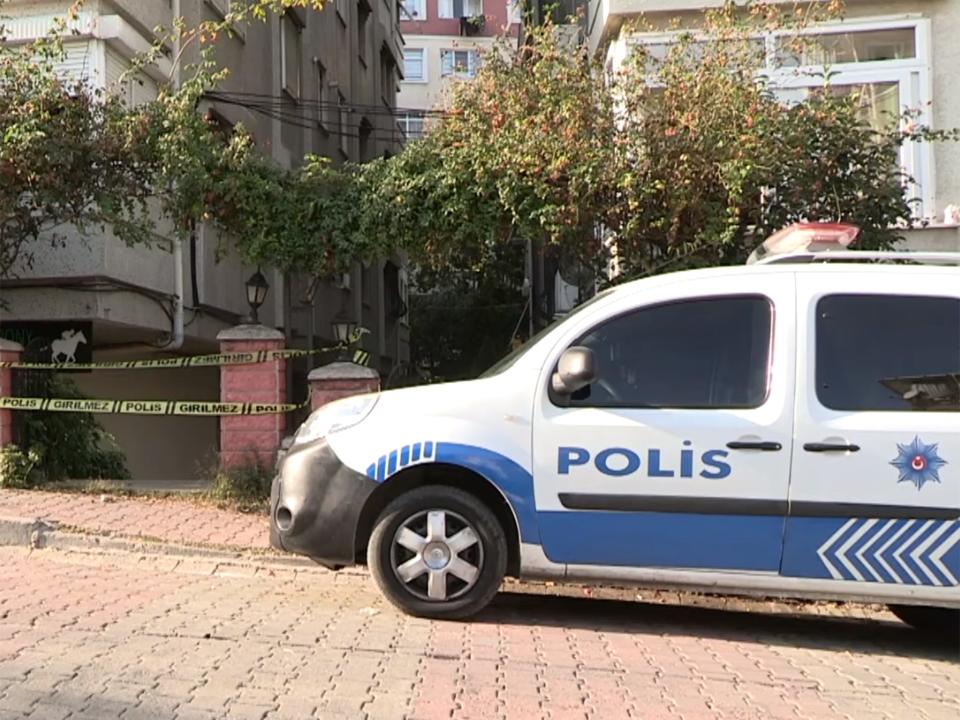Turkey ‘bans cyanide’ after spate of mass suicides linked to poverty

The family of four were found on the top floor of an eight-story apartment building in the Turkish resort city of Antalya. Mother, father, nine-year-old girl and five-year-old boy were all dead. The preliminary conclusion for cause of death: suicide by cyanide poisoning.
Turkish news outlets said the 36-year-old father, Selim Simsek, had left a note describing the mass suicide as an act of economic desperation. He lamented that he had not found work in nine months, was burdened with debts and had just received an eviction order.
Just days earlier, four siblings were found dead from cyanide poisoning in their home in the Istanbul district of Fatih, also purportedly over economic issues. And on 15 November, a family of three, including a child, was found dead by the same means in the city’s Bakirkoy district after the family’s despondent patriarch had gotten himself into “an excessive amount of debt”, according to media citing police.
Responding to this apparent wave of mass suicides by cyanide over alleged economic troubles, Turkey’s minister of environment and urbanisation, Murat Kurum, late this week took steps to ban sales to the public of the chemical. Under new rules, companies must send end-user declarations tracking sales and distribution of cyanide.
While cyanide has numerous industrial applications – from pest control to cleaning jewellery and plastics – it is also a well-known poison.
Cyanide tablets are often used by fictional spies facing capture. And in 1978, American cult leader Jim Jones ordered his followers living in Guyana to drink cyanide-laced Kool Aid, causing 900 deaths. Cyanide gas was used by the Nazis in extermination camps during the 1940s.
The rash of fatalities in Turkey – three families in less than two weeks – has garnered headlines in opposition newspapers and prompted harried defences by those close to the government of President Recep Tayyip Erdogan.
In power now for nearly 16 years, Mr Erdogan oversaw an extensive and long period of growth during his first years as Turkey’s leader but is now struggling to improve the country’s economy. Turkey has struggled with the fallout of a financial crisis that lowered the value of the lira, increasing borrowing costs, pushing up unemployment and exacerbating inflation.
In recent months, there have been numerous reports throughout the country of suicides over economic woes. In September, a shopkeeper in Canakkale purportedly killed himself over his inability to pay off £65,000 debts. The death made the front page of a leftist newspaper.

That same month, a 41-year-old electrician in the Turkish town of Kocaeli took his own life after being unable to afford a school uniform for his son.
Opposition politician Gamze Akkus Ilgezdi recently prepared a report alleging that 223 Turks had taken their own lives over economic hardships in 2017, before the worst of Turkey’s economic troubles crested.
“The social trauma of feeling you have no future or security has reached an unbearable level,” Canan Kaftanloglu, a leader of the opposition People’s Republican Party (CHP), wrote on Twitter to her 600,000 followers.
Opposition lawmakers have put forth a motion to investigate whether economic woes were causing suicides. "Collective suicides have become a social problem in our country," CHP deputy chair Veli Agbaba was quoted as saying in the Cumhuriyet newspaper.
Some have sought to use the deaths to tarnish the government over broader matters, including its handling of the country’s Kurdish minority. The ethnic group has felt alienated over the nationalist outpouring ignited by Turkey’s military intervention against a Kurdish militia in northeast Syria.
"Today we see that bullets are given to the Kurds as their share and cyanide is given to the Turks as their share,” Sezai Temelli, co-chair of the Kurdish-led People’s Democratic Party (HDP), was quoted as saying. “Suicide is not the solution. Do not commit suicide. We will fight together and get rid of this power.”
Supporters of the government accuse opponents of using a tragic social phenomenon for political ends. One columnist accused media outlets, including BBC Turkish, of fanning the flames.
“Before anyone knew how the suicide took place, [BBC Turkish] published stories that four siblings died out of poverty after saying they were unable to pay their debts to the local grocery shop or pay their electricity bills,” wrote Dilek Gungor in the pro-government Sabah newspaper.
More than a few journalists and media analysts have also urged news outlets to ease their coverage of the suicides, worrying the sensational headlines could be encouraging others who are in desperation. Turkish news outlets splash names and photos of the purported victims on the front page, observing little of the conventions of sensitivity regarding suicide that have been taken up by western media outlets in recent decades.
“We shouldn’t forget what we can cause while we report on suicides,” Ebubekir Sahin, the head of Turkey’s media watchdog, wrote on Twitter.
It also remains unclear whether the killings amounted to mass suicides or homicides followed by suicides, especially as the deaths include very young children, and the perpetrators could have poisoned the others without their knowledge.
“All my siblings are dependent on my income,” one of the four siblings in Fatih told a neighbour before the deaths, according to a newspaper. “If anything happens to me they would die. I do not want to live either. If I die, they must die. Or they will be miserable.”

 Yahoo News
Yahoo News 